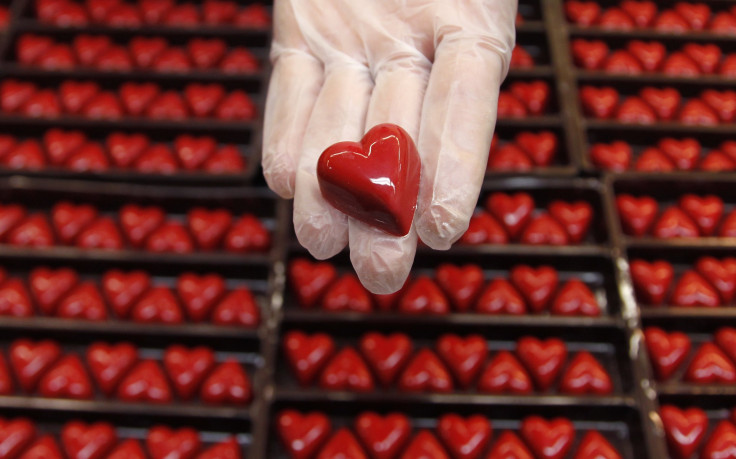Red Wine And Chocolate, Perfect For Valentine's Day And Your Health?

Flowers, chocolate and wine are all staples of Valentine's Day and recent studies are shedding light on the positive health benefits of the fancy confection and vino. But before you go running to grab boxes of chocolate and red wine off shelves, there are some caveats to these studies.
One thing that all studies agree on is the potential power of resveratrol. Whenever you hear about how red wine is "heart healthy" or reduces cholesterol, chances are the study is looking at the benefits of resveratrol. Red wine and antioxidants found in red grapes could increase high-density lipoprotein, "good" cholesterol, and lower low-density lipoprotein, "bad" cholesterol, and could prevent blood clots, according to the Mayo Clinic. Resveratrol also could help protect against obesity and diabetes.
That sounds great and a "weight loss miracle," but there's a major catch. All these positive benefits of the antioxidant were found in mice studies. Scientific studies are very careful about using definitive language, hence all the "coulds" and "maybes," and that's especially true for any mice study. Until there are human trials, there's no guarantee that what researchers see in mice could apply to humans. Another thing to consider is the mice are being fed large doses of resveratrol and getting that much of the antioxidant in a human would require drinking 1,000 liters of red wine, notes the Mayo Clinic.
Take the best-sounding study from last year, the one that said drinking red wine was the same as spending an hour at the gym. That's incredible news except for pretty much everything. The study was first published in 2012 and conducted with mice. The main takeaway was that resveratrol improved exercise performance in mice. The study's lead author, Jason Dyck, had to make the rounds on television to clear up things and the University of Alberta also had to provide some context. "Red wine is no excuse not to hit the gym, period," the university said in a statement. There's also the study from Johns Hopkins University School of Medicine that showed that dark chocolate and resveratrol did not lower heart disease risk.
While the jury is out on resveratrol, there is another chemical in red wine that could be beneficial to burning fat. An Oregon State University researcher found ellagic acid reduced blood sugar levels and reduced fat in livers of mice. "We didn’t find, and we didn’t expect to, that these compounds would improve body weight," Neil Shay, an OSU biochemist, said in a statement. "But by boosting the burning of fat, especially in the liver, they may improve liver function in overweight people."
Chocolate has a similar status as red wine, according to the Mayo Clinic. There could be some heart benefits, such as lower blood pressure, but any consumption should be in moderation. If you want to add chocolate, make it cocoa or dark chocolate. Chocolate could boost memory, but that study has many of the same drawbacks as the red wine research.
While you may not be healthier after Valentine's Day, having some chocolate and red wine in moderation won't be too bad for you.
© Copyright IBTimes 2025. All rights reserved.






















